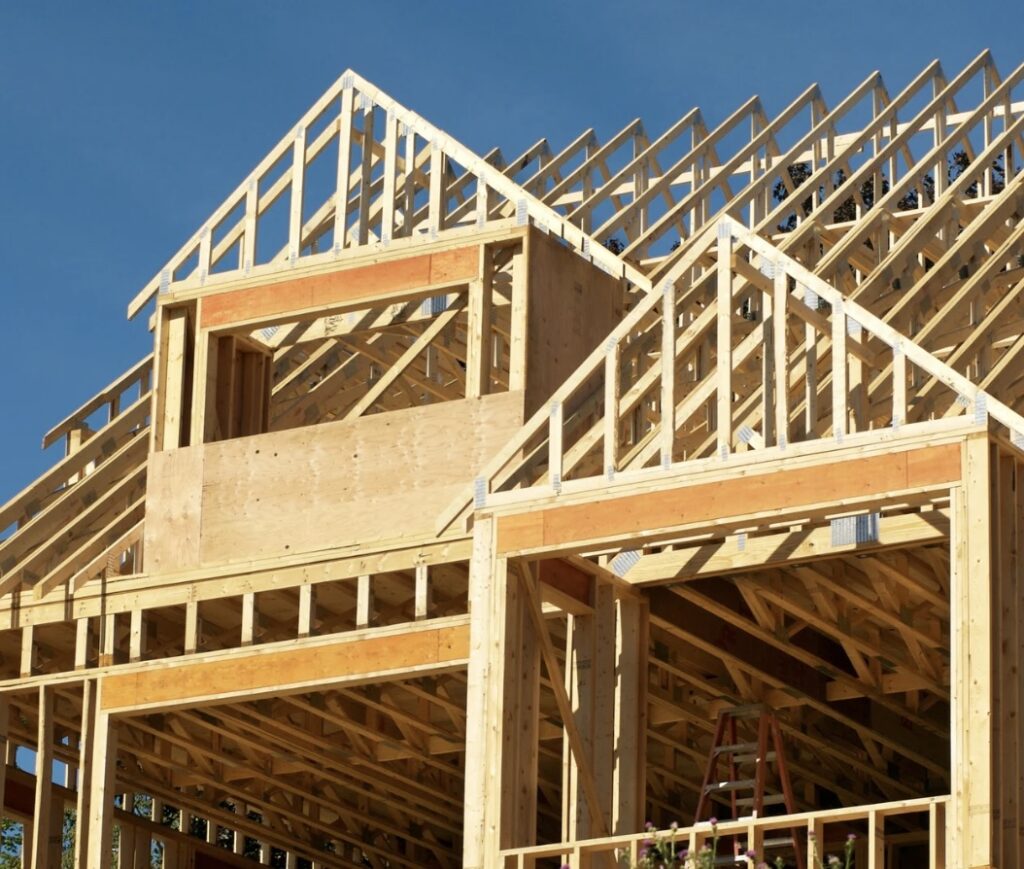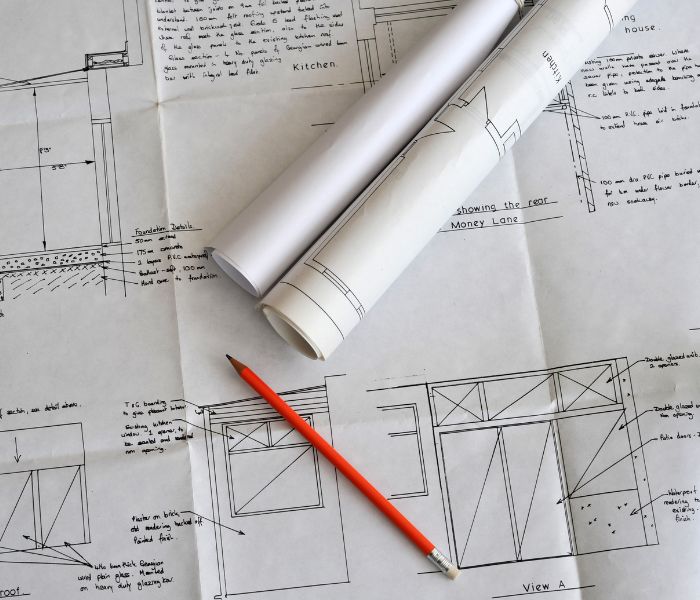Navigating the complexities of financing your project is easier and less risky when you have a detailed construction schedule. Bernstein Financial Services encourages real estate developers never to go in blind. Take the time to create a detailed development timeline that represents every step, and its corresponding costs. Having a construction timeline and cost schedule will help you make sure you have the money you need through every phase, without surprises or stress.
We share this example construction schedule for a small multi-family real estate development project.
This article is not intended to be an exhaustive look at development – that would take a thick book. Use these general guidelines to create a construction timeline for your own project so that you, as the developer, can manage the work and the financing to ensure that your project remains financially viable and achieves your objectives.
Example Construction Schedule for a Small Multi-Family Real Estate Development
Pre-Development Phase
Financing: Before you find the right land, make sure that you have the funding ready to go. The last thing you want is to find the best location for your project, only to have it slip through your fingers because you don’t have the money. Whether through syndication or using your own funds, always raise more than you’ll need.
Location: Spend as much time that you need identifying the right land to develop. Evaluate what’s available in enterprise and opportunity zones. Conduct market research and a feasibility study to assess demand and competition. Identify potential sites and evaluate their suitability for development.
Talent: Begin to assemble your team of real estate experts. Architects, engineers, and other design professionals will help you develop preliminary plans and design concepts. Try to bring on talent that will stay with you throughout the entire project. Draw up financial forecasts that predict cash flows, revenue streams, expenses, and profitability throughout the project’s lifecycle. Make a plan to meet weekly to develop your timeline, review progress, and to determine if you are meeting goals and expectations.

Design and Planning Phase (6 months):
Approvals: Obtain necessary permits and approvals from local authorities. Building solid connections with the permit personnel, surveyors, and other professionals can help you negotiate and secure financing and approvals.
Construction Documents: Finalize construction drawings, specifications, and materials. Team up with a financing company or lender that will you reasonable terms, wheter only construction financing or permanent financing. Be sure to review the covenants and ratio requirements in the financing contract so that you are not surprised later (i.e., if the project is delayed, is there a clause to help you handle this issue, or will you be in default).
Budget: Develop a comprehensive project schedule and budget. A comprehensive budget should align with the project’s scope. Funds must be allocated for different phases of the construction process, including pre-construction, construction, and post-construction phases.
Pre-Construction Phase (approximately 3 months):
Finalize Budget: Has your budget accounted for contingencies to handle unforeseen costs, such permits fees and overhead expenses? Are you sure that the materials, labor, and equipment are outlined in the initial budget?
Hire Contractors: Set proper expectations for your contractors and subcontractors from the beginning. Ask for their liability insurance, workers’ comp, and other relevant insurances and bonds. Finalize your contracts with construction firms and suppliers, and conduct site preparations.

Construction Phase (4 months – 2 years):
Let construction begin! It will start with site preparation and foundation work and progress through finishing the interiors. You may find unexpected challenges or changes in the project scope.
Manage project finances: Don’t keep your numbers in your head, including budgeting and cost control. Meet with your team and take written notes that you share with everyone on your team.
Keep an eye on progress against your timeline, noting slowdowns and also places where you can gain time. Look for strategies to control costs and minimize expenses throughout the construction project. and implementing efficient project management practices. Conduct regular inspections and quality control checks.
Ensure timely delivery of materials and services to subcontractors and suppliers so you can negotiate the most favorable contracts.
Completion and Occupancy Phase (2 – 6 months):
As you complete the finishing touches, you will prepare units for occupancy, including cleaning and minor repairs. Obtain final inspections and certificates of occupancy. Address any punch list items or deficiencies identified during final inspections.
Discuss strategies for finding tenants with your new property management team.
Post-Development Phase (Ongoing):
Though the construction project is over, the work is only beginning. You can now collect rent and will need to monitor property performance. Develop financial metrics that help you evaluate profitability.
Conduct periodic property inspections and assessments and look for more opportunities for future improvement.
Keep in mind that that your construction schedule and development timeline will vary depending on factors such as project size, complexity, location, regulatory requirements, financing arrangements, and market conditions. It’s essential to adapt the timeline to the specific circumstances of your project and to allow flexibility for unforeseen delays or challenges that may arise during the development process.
This article is for educational purposes only and should not be taken for business advice about your specific situation. Schedule a consultation appointment with a Principal at Bernstein Financial Services to help you determine your optimal planning strategies.

Comments
One response to “Navigating Your Real Estate Development Timeline”
What a fantastic resource! The articles are meticulously crafted, offering a perfect balance of depth and accessibility. I always walk away having gained new understanding. My sincere appreciation to the team behind this outstanding website.